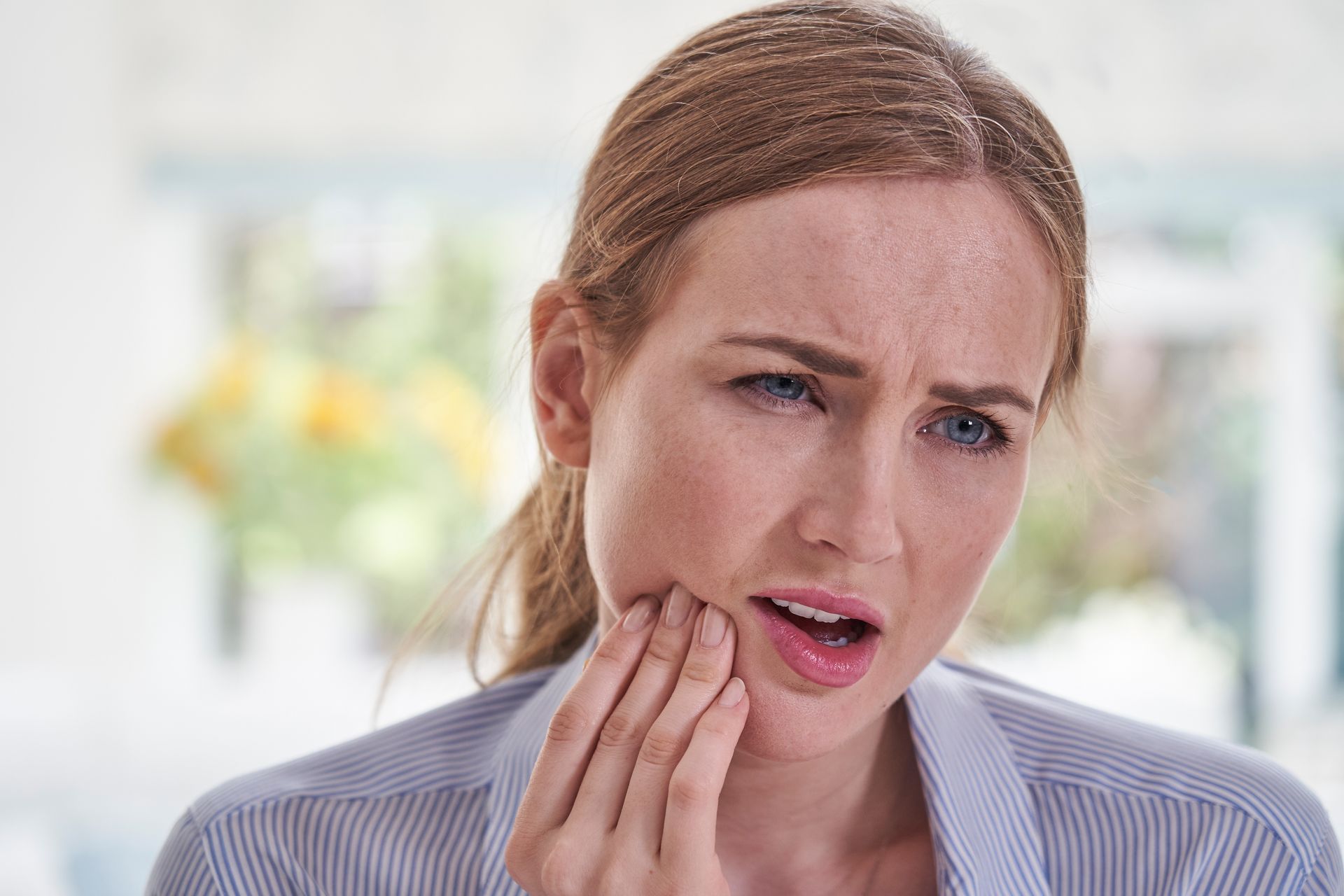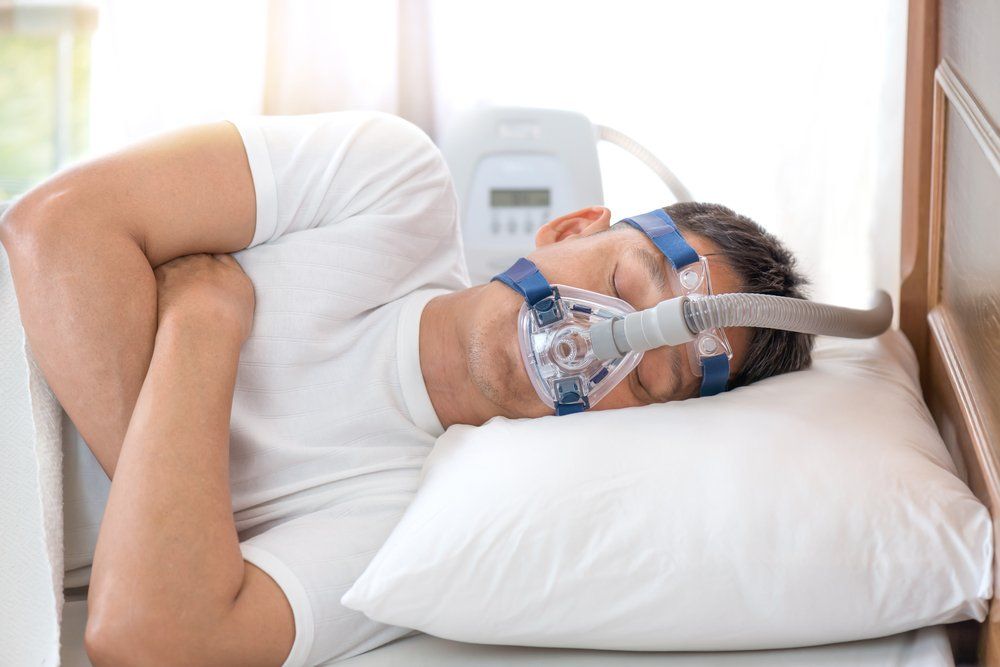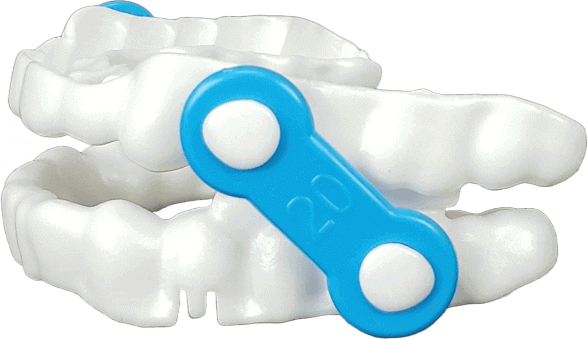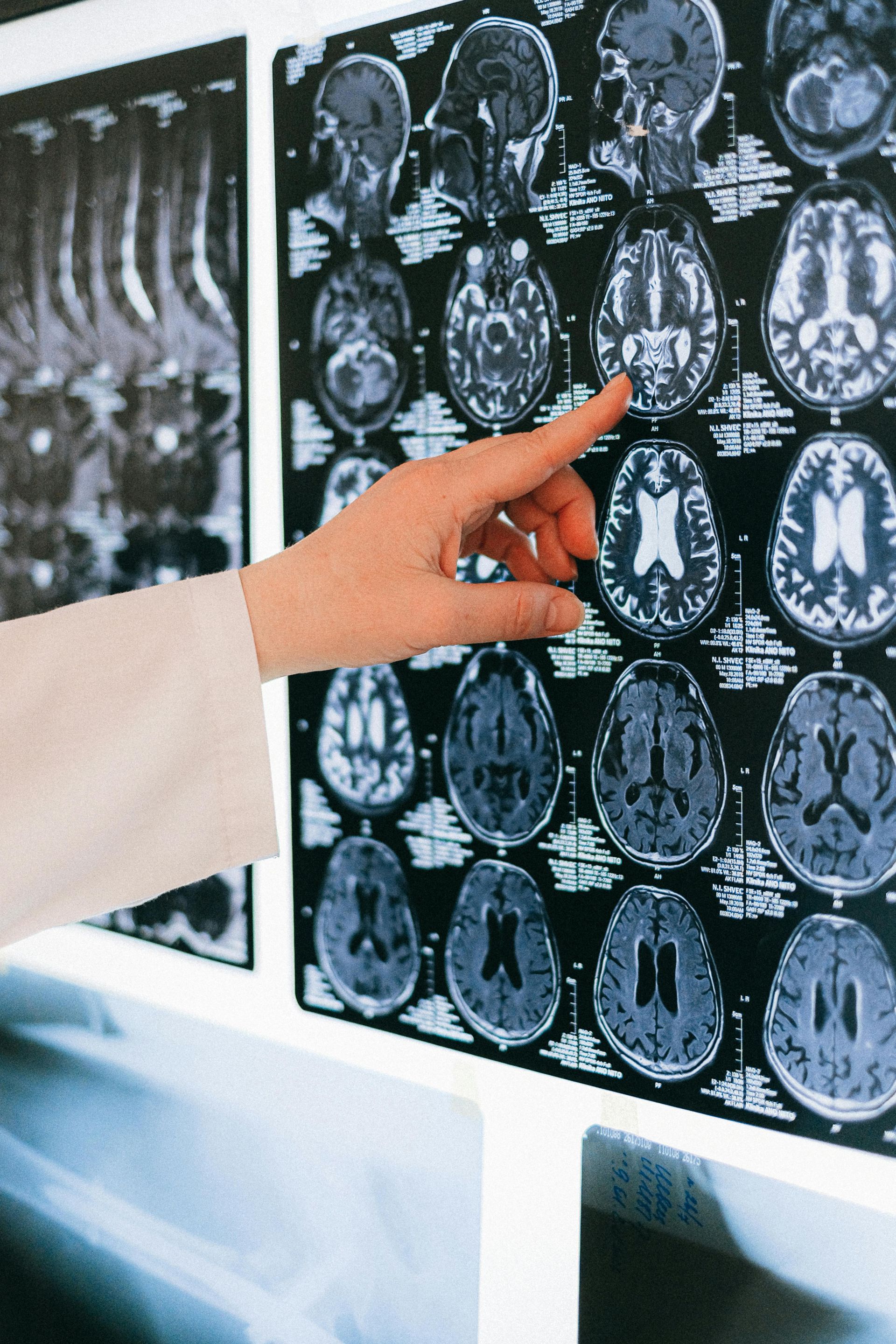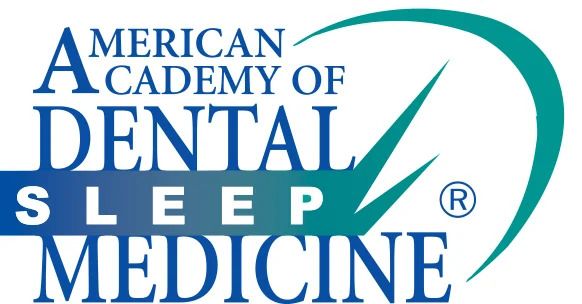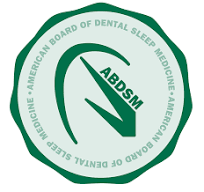6 Bad Habits That Make Your TMJ Flare-Ups Worse

Pain and dysfunction in the temporomandibular joint (TMJ) affects millions of people. Bad habits like improper jaw support, oral fixation habits, clenching and grinding, tongue thrusting, poor eating habits, and inadequate stress management can all contribute to flare-ups that can make the pain in your TMJ worse.
Many people suffer from temporomandibular joint (TMJ) disorder, which causes jaw pain, difficulty with chewing, clicking or popping noises, and locking of the jaw. In order to manage TMJ issues effectively, it’s important to identify and adjust lifestyle or behaviors that make the condition worse.
For more than 15 years, TMJ specialists Dr. Katherine S. Phillips and Dr. YC Joseph “Joe” FischerHahm of Restore TMJ & Sleep Therapy in The Woodlands have dedicated their practice to treating patients suffering from TMJ and TMD pain. With proven therapies and treatment modalities, they have helped thousands of people find the best solutions for managing their TMJ symptoms, reducing flare-ups, and relieving pain while improving their quality of life.
Understanding TMJ Disorders (TMD)
The temporomandibular joint, or TMJ, plays a vital role as the link between the jawbone and the temporal bones of the skull. This complex joint enables a combination of hinged and sliding motions that facilitate essential movements such as chewing, speaking, and facial expressions, so it’s important that the TMJ functions properly.
TMJ Disorders: Causes and Symptoms
Disorders of the TMJ occur when the TMJ is not functioning properly. Patients suffering from a TMJ disorder (TMD) experience persistent jaw pain, difficulty moving the jaw, and sounds (clicks or pops) when the jaw moves. They may also experience ear pain, headaches, and difficulty chewing.
There are several reasons a person may experience pain in their TMJ, including:
- Injuries. Injuries to the jaw can directly affect the joint or the muscles causing immediate or long-lasting pain.
- Arthritis. The cartilage in a joint can deteriorate because of arthritis and make it difficult to move the joint smoothly.
- Genetics. Genetic factors can predispose individuals to TMJ-related issues.
- Bad habits. Unhealthy habits, such as teeth grinding or excessive gum chewing, put undue stress on the TMJ joints.
Diagnosing TMD
Typically, TMJ disorders are diagnosed via a comprehensive physical examination, including jaw movement assessments and imaging tests to evaluate the joint’s condition. Knowing and understanding these factors is crucial to managing symptoms and preventing further complications.
6 Bad Habits That Exacerbate TMJ Pain
Habits play a significant role in the development and exacerbation of TMD. Jaw clenching and teeth grinding in particular are common sources of increased pain and joint dysfunction.
Here are 6 bad habits that may be making your TMJ pain worse and how you can minimize it.
1. Improper Jaw Support
Resting your jaw in your hand places uneven pressure on the TMJ, potentially leading to pain and discomfort. This habit, which is often done unconsciously, can strain the joints and muscles, exacerbating TMJ symptoms.
Strategies to avoid improper jaw support:
- Conscious positioning. Regularly remind yourself to keep both feet on the ground and maintain an upright posture to avoid leaning into your hand.
- Ergonomic setup. Adjust your work environment to support proper posture. Position screens at eye level and choose seating with back support.
- Breaks and exercise. Take frequent breaks from periods of being stationary to stretch and relieve tension in the jaw and neck. Gentle jaw stretching exercises can help keep the muscles relaxed and avoid needing to rest your jaw in your hand.
2. Oral Fixation Habits
Nail biting, cheek chewing, and lip biting are oral fixation habits that can aggravate TMJ symptoms because of the stress they place on the joint. They can alter jaw alignment and muscle function over time.
Strategies to reduce oral fixation behaviors:
- Substitute with healthy alternatives. Use sugar-free gum or hard candies—in moderation—to keep your mouth occupied without damaging the TMJ. Don’t over-rely on substitutes, which can cause further issues.
- Awareness tools. Bandages on fingers or bitter-tasting nail polish can deter nail biting.
- Stress management. Since these habits often increase with stress, practicing relaxation techniques like deep breathing or meditation can reduce their frequency.
- Professional help. For persistent habits, consider seeking advice from a dental or psychological professional for behavior modification strategies.
3. Teeth Grinding (Bruxism) and Clenching
Grinding and clenching your teeth, especially while sleeping, significantly contributes to TMJ pain. This habit can wear down teeth and increase jaw tension and misalignment.
Strategies to Treat and/or Prevent Bruxism:
- Mouth guards. A TMJ specialist can provide custom-fitted mouth guards to wear during sleep, which protect teeth and reduce the strain on the jaw.
- Stress reduction. Since stress is a common trigger, techniques such as yoga, meditation, or regular exercise can help manage your stress levels and reduce unconscious clenching and grinding.
- Behavioral changes. Be mindful of jaw clenching during the day and practice jaw relaxation techniques to relieve tension and reduce the habit.
- Professional assistance. For severe cases, a health care provider may recommend physical therapy or medications to relax the jaw muscles and manage pain.
4. Tongue Thrusting and Jaw Clenching
Tongue thrusting—pushing the tongue between or against the front teeth—and the habitual tightening of cheek and jaw muscles cause excessive tension in the TMJ, which can worsen pain and discomfort. These repetitive habits can push teeth out of alignment and cause unnatural jaw strain and movements.
Strategies to Reduce Tongue Thrusting and Jaw Clenching:
- Awareness and relaxation. Learn to recognize when you’re clenching your jaw or thrusting your tongue and consciously relax these muscles. Check in regularly with yourself throughout the day to help build awareness.
- Exercises. Specific exercises designed to strengthen and relax jaw muscles can be beneficial. A dentist or physical therapist can provide personalized recommendations.
- Stress management. Since these habits may be stress related, practicing activities to reduce stress, such as deep breathing, mindfulness, or engaging in hobbies, can reduce their frequency.
- Professional guidance. For persistent issues, a TMJ specialist can recommend treatments such as bite adjustments or orthodontics to address underlying causes.
5. Poor Eating Habits
The TMJ may be forced to work harder when you eat hard, chewy, or large pieces of food, which leads to increased pain and flare-ups. This excessive strain can worsen TMJ symptoms over time.
Strategies to Reduce Eating-Related TMJ Pain:
- Softer foods. Incorporate softer food options like yogurt, soups, and smoothies that require minimal jaw work and can give your TMJ a rest.
- Smaller pieces. Cutting food into smaller pieces or taking smaller bites helps minimize pressure on the jaw when eating.
- Avoid chewy and hard foods. Steer clear of gum, caramel, nuts, and hard candies to prevent unnecessary stress on the TMJ. Chewing ice and other hard foods can crack teeth and cause jaw misalignment.
- Mindful eating. Eat slowly and chew gently to reduce the workload on your jaw. This practice benefits the TMJ and aids digestion too.
6. Lack of Awareness of Daily Patterns
Other unconscious habits that aggravate TMJ symptoms include poor posture and repetitive jaw movements. Being unaware of these habits hinders effective TMJ treatment.
Strategies to Increase Awareness of Habits that Can Cause TMJ Pain:
- Journaling. Keep a daily log of activities, noting when TMJ pain occurs. This can help identify triggers related to posture, jaw tension, or other habits.
- Posture checks. Regularly assess and correct your posture, especially when sitting for long periods of time, to keep your shoulders, neck, and jaw properly aligned.
- Mindfulness practices. Engage in mindfulness to increase your body awareness. This makes it easier to notice and adjust harmful habits.
Managing TMD with Lifestyle Changes
Making proactive and intentional lifestyle adjustments can greatly reduce TMJ symptoms, mitigate flare-ups, and improve your overall well-being.
Stress Management
Effectively managing stress and anxiety can go a long way in helping to reduce TMJ pain. Stress often intensifies jaw clenching and teeth grinding, but techniques such as meditation, yoga, and deep breathing exercises can reduce stress and anxiety levels and help the muscles of the face and jaw relax. Additionally, participating in hobbies or activities that bring you joy can divert attention from stress, indirectly helping your TMJ health.
Regular Exercise and Good Posture
Regular exercise and maintaining good posture can relieve tension in the TMJ and promote better alignment and function. Activities like walking, swimming, or cycling improve overall physical health without straining the TMJ. It’s best to avoid high-impact sports, which can increase the risk for TMJ trauma, or activities like weightlifting with intense exertion that can lead to jaw clenching. Focusing on exercises that can strengthen the back and neck can also improve posture and reduce jaw tension and strain.
Treating TMD with a TMJ Specialist
When lifestyle changes aren’t enough, a TMJ specialist can provide a variety of therapies to help you manage TMJ flare-ups, reduce pain, and minimize symptoms. TMJ pain is complex and multifactorial, and solutions for treating it are not one-size-fits-all; the best treatment plans for managing TMD are comprehensive, personalized, and integrative, and may include physical therapy, dental splints, or even surgery in severe cases.
A TMJ specialist has extensive experience in orofacial pain and the treatment of TMD, as well as access to a multitude of medical specialities and modalities that can help address not just your symptoms but the root of the problem for better, more sustainable relief from pain and discomfort.
Prevent TMJ Flare-Ups with Treatment from Restore TMJ & Sleep Therapy
Recognizing and changing habits that worsen TMJ symptoms are key to managing this painful condition, but it can be difficult to do this on your own. TMJ specialists Dr. Phillips and Dr. Joe of Restore TMJ & Sleep Therapy can provide you with proven therapies and treatment options that will help you make the permanent changes necessary for long-lasting relief and better health outcomes. From standard methods like splint therapy and bite orthotics to innovative solutions like trigger point injections and therapeutic Botox, Restore TMJ & Sleep Therapy offers treatment support that is tailored to your unique needs so you can go about your daily life with confidence instead of pain.
If you or someone you love is suffering from flare-ups of TMJ pain, who you choose for treatment matters. Dr. Phillips and Dr. Joe FischerHahm of Restore TMJ & Sleep Therapy have the training, experience, and expertise to diagnose and treat your condition for the best possible results.
Schedule an appointment today to take the first step towards living without TMJ pain.
-2700x842-1920w.png)





